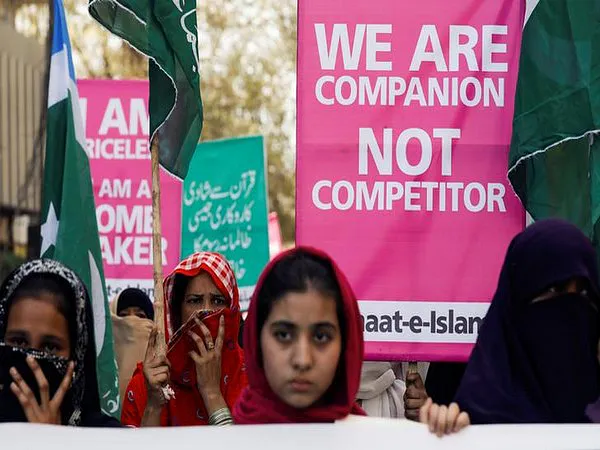Pakistan’s grievance redressal institution against harassment has received a record number of nearly 5,008 complaints in the last four years – an exceptional increase in the number of registered cases, media reports said.
Harassment complaints are yet another grim reminder of the rights situation in Pakistan, especially for women. In an annual report launched by the office of the Federal Ombudsperson Secretariat for Protection against Harassment (FOSPAH), the secretariat highlighted that it has received over 5,000 complaints in the last four years, Pakistan’s local media outlet Dawn said.
The launch was done at the President’s House on Friday in coordination with United Nations (UN) Women. Members of the diplomatic community and journalists were also present on the occasion.
The report stated that as few as 84 cases were registered between the years 2010-13 while 398 cases were registered between 2013-18. Between 2018-22, however, 5,008 cases were registered out of which 3,698 were filed by women and 1,310 by men.
It further said out of the 5,008 total cases, 1,689 men and women from the government sector and 3,319 male and female applicants from the private sector registered complaints with the office of the ombudsperson.
Besides, the 275 active cases of harassment at the workplace, the report claimed that 4,733 cases were successfully closed. More than 5,000 complaints received by ombudsperson from 2018-22.
Pakistani President Dr Arif Alvi while taking cognizance of the grave situation called for economic empowerment, property rights, harassment-free workplace for women.
Notably, in Pakistan, women made up almost 50pc of the country’s population and it is of utmost importance to give impetus to their growth in various key sectors of the country including business, trade and service sectors, as per Dawn.
Pakistan is also undergoing a severe flood crisis where thousands of people are left homeless and their houses in a shambles. There was a huge loss of livestock which is leading to food insecurity in the country.
Speaking on the current flood situation in the country, the President expressed solidarity with flood victims and extended condolences for those who had lost their lives.
Raising concern over the country’s human rights situation, especially for women, Pakistan Human Rights Commission believed that developing comprehensive anti-trafficking legislation and National Action Plan will not make difference until they are implemented or practised on the ground.
On the occasion of World Day Against Trafficking in Persons on July 30, Pakistan’s human rights body has replugged its 2021 report on trafficking and raised concern over women and girls’ situation in the country.
“In order to identify the root causes and magnitude of trafficking, there should be a system to collect, compile and report data on various dimensions of trafficking in persons in Pakistan. Officials of concerned department and LEAs should be sensitized and their capabilities built to identify and report a crime,” the HRC said in its last year’s report.
“Developing comprehensive anti-trafficking legislation and National Action Plan will not make difference until they are implemented or practised on the ground. There is a need to develop synergy and story coordination among all stakeholders to prevent trafficking and protect victims, and punish traffickers,” the body stated further.
The condition of women in Pakistan has been deteriorating severely.
Revealing a grim picture of the state of women in Pakistan, a report by the World Economic Forum (WEF) has ranked Pakistan as the second-worst country in terms of gender parity, a media report said.
In the Global Gender Gap Report which was released by WEF, Pakistan is placed in the 145th spot in a survey of 146 countries, Dawn reported.

